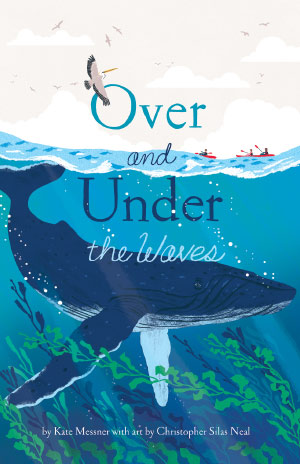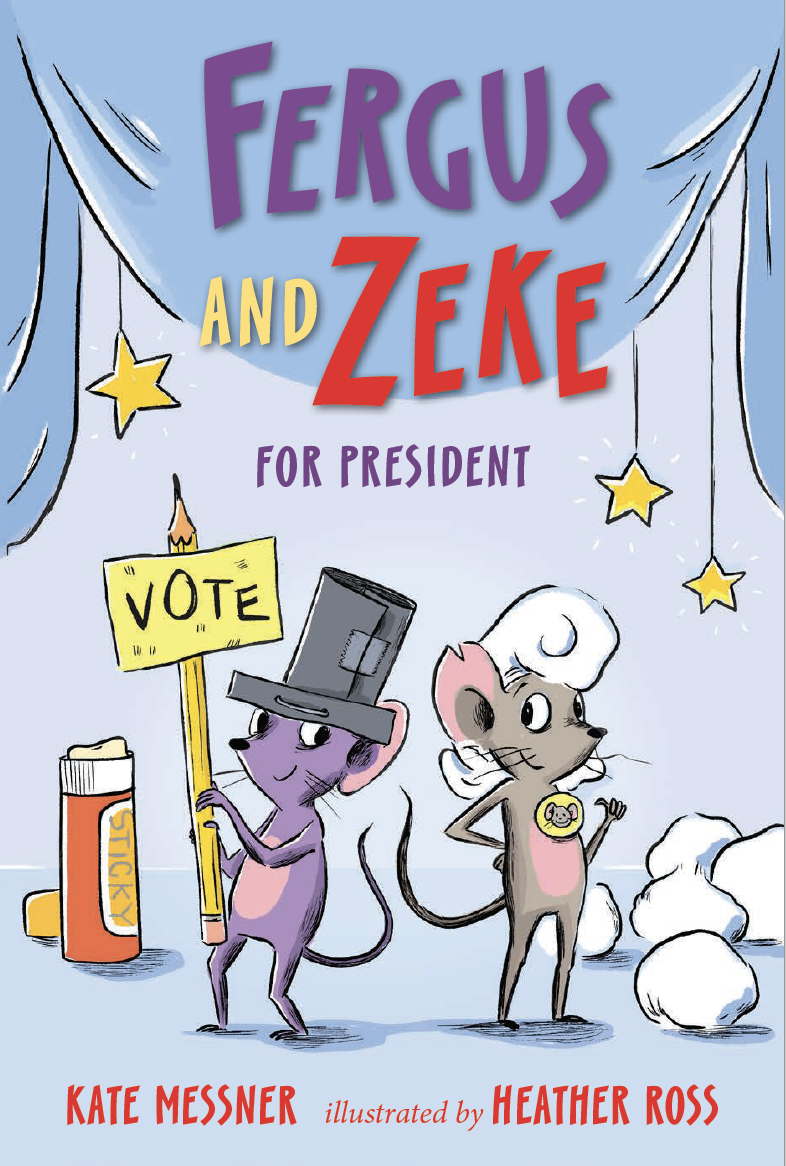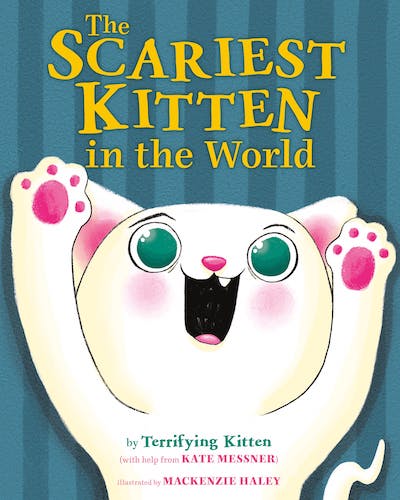Good morning, and welcome back to Teachers Write! This week’s mini-lesson is from guest author Linda Urban, who writes picture books, chapter books, and novels for kids!

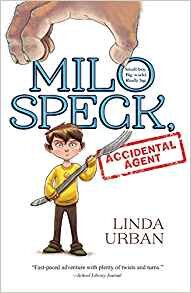
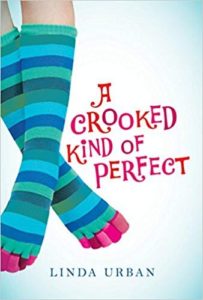
Keeping a Notebook
Are you keeping a notebook this summer?
You might notice I didn’t ask if you were keeping a writer’s notebook. That’s because, when I started writing, the idea of a Writer’s Notebook felt intimidating. Presumptuous. Maybe a little too precious. Every mark I put on the page would have felt to me like it should be, if not perfect, Important.
Who can write with all those expectations?
Which is why, when I finally did start the practice of keeping a notebook, it was a blessed jumble of all parts of my life – from recipes to odd things my kids said, to doodles (mine and those of my kids), to the bits of dialogue, fragments of poetry, brainstorms and mindmaps and what-ifs that might, eventually, turn into writing projects that I wanted to pursue in earnest.
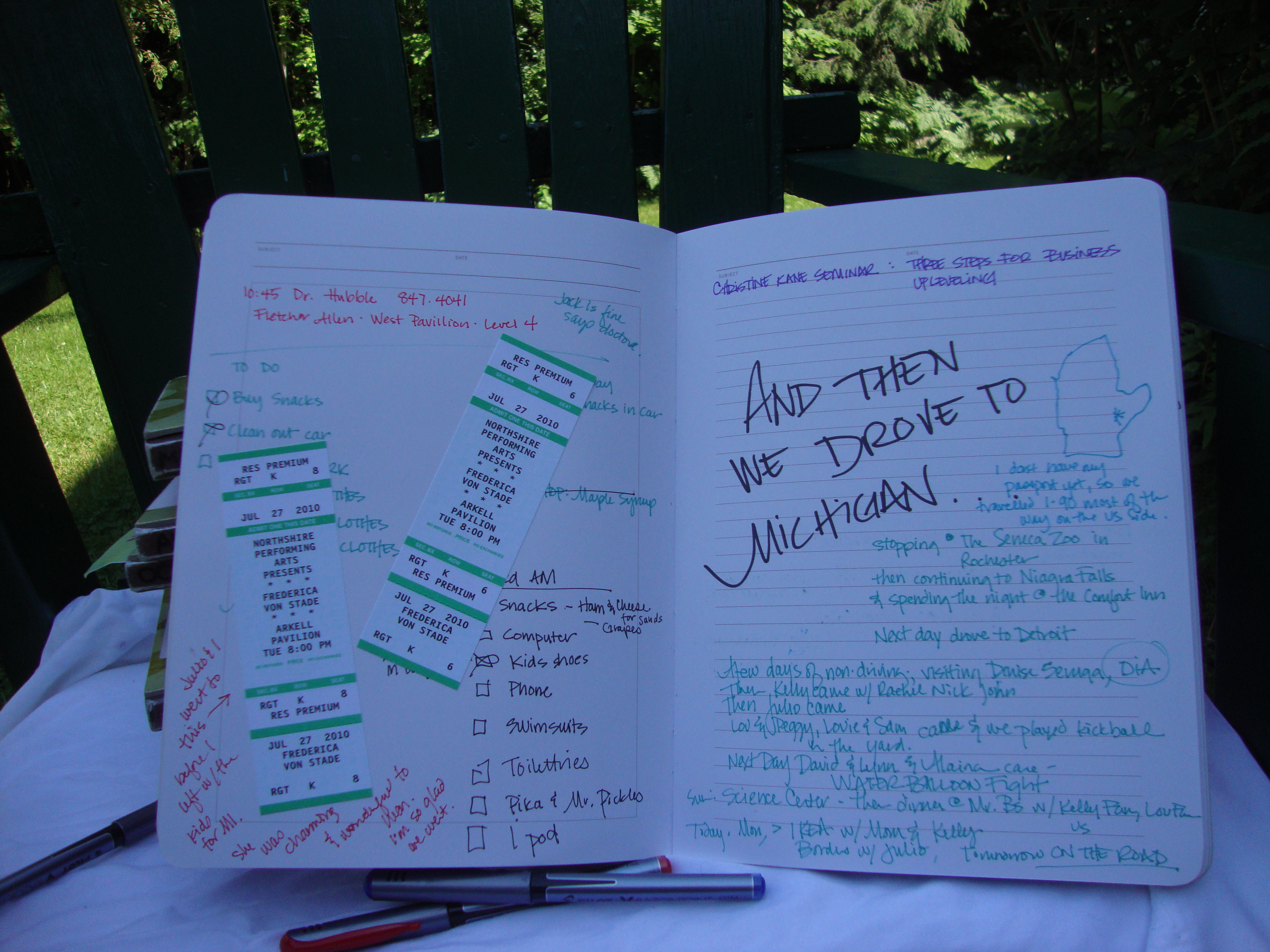
Here is an example. My first connection to the book that would eventually become The Center of Everything is in one of those jumble notebooks. I took this notebook to a weeklong workshop in Portland, Oregon where I was on faculty. On the same page that I had made a note to myself about the shoes that fellow faculty-member Marla Frazee was wearing (Fluevog pumps, in case you are wondering) I also wrote my own response to a prompt I had given my students. In it, I recalled the last exchange my dad and I had before he died, and how I wished I had said something different. The rest of that notebook is the usual scribble and blot.
A year later, in a similarly jumbled notebook, I wrote down some thoughts about the Montpelier Independence Day parade I had just attended. Among them was a question: Why did the kids lining the streets get so excited? It was the same parade as last year. And the year before. What could they be hoping would happen?
Which led me, a day later, to ponder about one specific kid – a kid I was only beginning to imagine – and what she might be waiting for and why it mattered so much.
Which led to more questions. And thoughts about parades. And some list making about the kinds of things one finds at a parade. And a bit of freewriting . . . a narrator’s voice was starting to emerge. There are several pages like this, interspersed with the recipes and to-do lists and doodles.
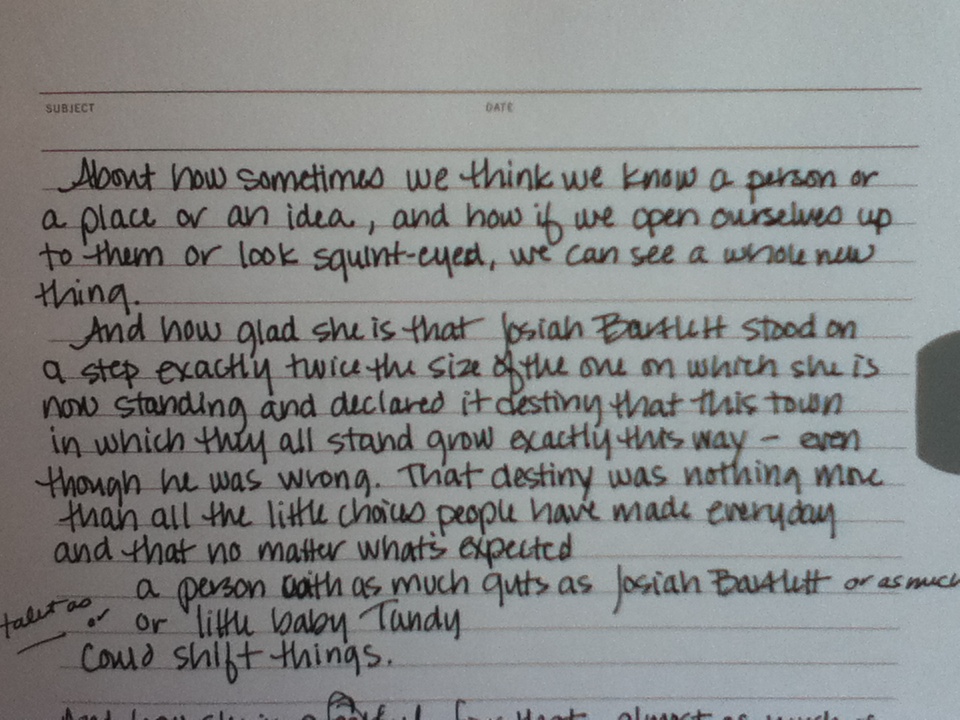
After a while, these pages started to feel more like a real project. Like they had some heft. And then my writing about this girl and her longing and this particular parade moved to my keyboard, and my notebook primarily returned to its happy jumble – though on occasion you can find thoughts and freewrites and scribbles of things that needed analog expression to find their way to me.
Once a draft was complete, it was time for another notebook – this time, no jumble. This time, my notebook was dedicated to a single project. And, because the project was now at the revision stage, it no longer felt like each word in my project notebook had to be Important. In fact, it was the opposite. In my project notebooks, I am able to de-important (hm… word choice?) what was already in the manuscript. At this stage, the manuscript and all the hard work that went into it can feel a little precious, but in my notebook I could scribble and dissect and analyze. I could keep track of what I wanted to change and what wasn’t working and play around with alternate phrasing and scenes and chapters in a free play space that was different than the space of writing, different than the space where the ultimate, final, hopefully publishable draft would be created.
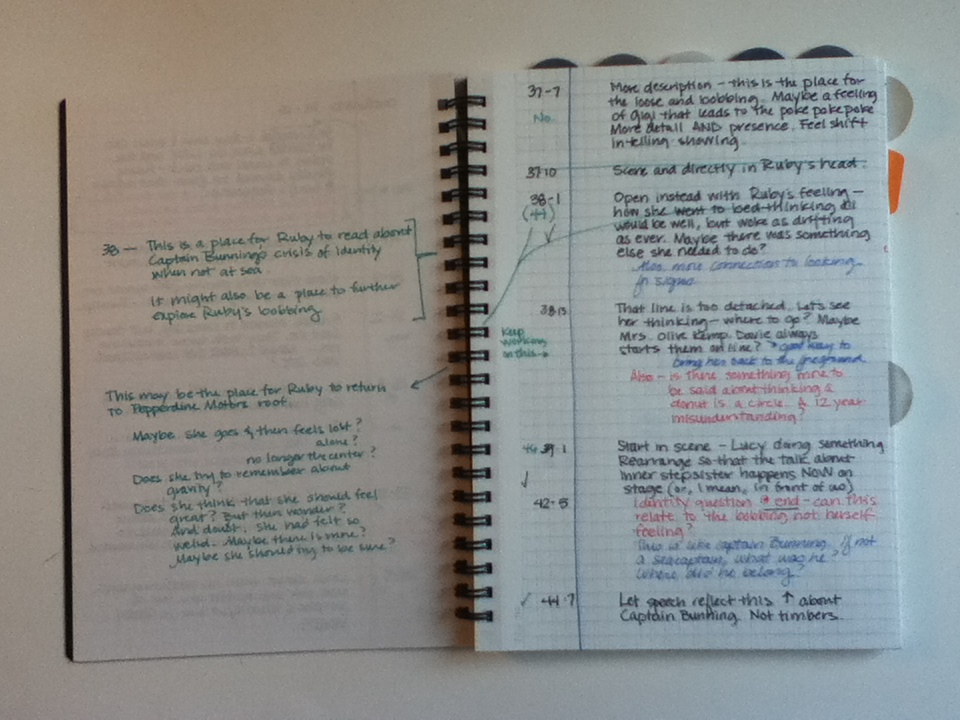
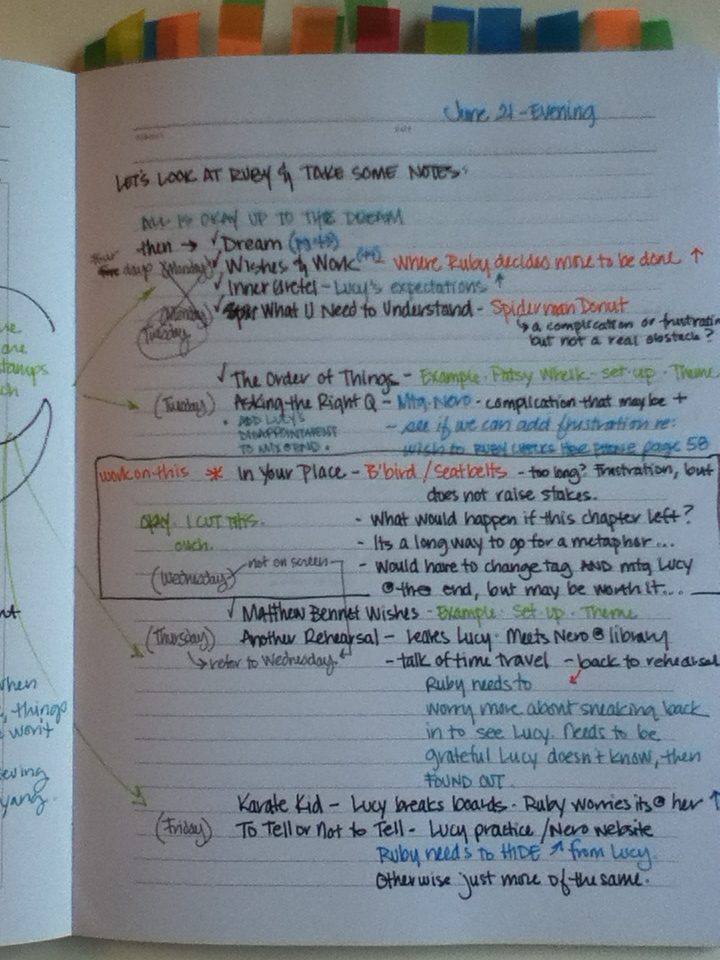
Yeah, there are some mind games at work. But mind games are part of what the writer’s practice is. We tell ourselves stories about what can work for us and then we believe those stories enough to put in the hours and the words. My notebooks are part of the story I tell myself about my writing process – and the story works for me. Maybe it will work for you, too?
This Week’s Revision Tip
This week’s revision tip comes from author Adrianna Cuevas, whose debut MG novel, THE TOTAL ECLIPSE OF NESTOR LOPEZ comes out tomorrow!

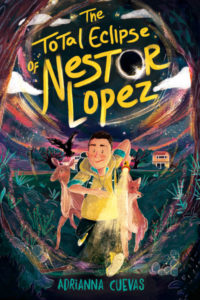
You’ve heard experts tell you to ‘kill your darlings’ when revising. I had to slaughter mine, completely rewriting two-thirds of my debut from scratch on the advice of my agent. I cut beloved characters, carefully plotted scenes, and meticulously crafted sentences. But in the end, those elements didn’t come together to form an engaging story young readers would love, so they had to go.
If the goal of a writer is to create a story readers will respond to, we have to disconnect ourselves from our writing and look at it objectively. Keeping the following questions in mind when reviewing your scenes will help you decide what needs to be cut and what still serves your story.
Does this scene advance the plot or reveal something essential about a character?
Does this character serve to help my main character, work against them to create tension, or provide information about the world I’ve created? Or are they just taking up space?
Is this sentence as active as possible? Have I taken out filler words and put my reader right in the action or am I using unnecessarily flowery language?
So be ruthless. Be ready to sacrifice your words for the sake of a better story. Yes, you should love your writing, but you always need to keep your ultimate audience in mind. And as the author of books for twelve-year-olds, I can tell you that throwing in a fart joke or two never hurts either.
This Week’s Writing Prompt from Kate
Describe a place that you love. Write a quick two-minute description. Then go back and spend one minute adding sounds to your description. Do the same thing with smells. And with the sense of touch.
When your paragraph is done, see if you can rewrite it as a poem. Think about line breaks, figurative language, and cutting all the words that aren’t working hard.
(This is a great activity to do with kids when you’re teaching about revision!)
Ready to get writing? Have a great week, and see if you can carve out fifteen minutes to write at least a few times. Remember that Jen Vincent will hosts your Teachers Write check-in on her blog each Sunday.It’s a chance to chat with other campers, ask questions, and share snippets of your writing for the week. You should stop by this week!
We’ll be back next week with another week’s worth of inspiration and writing!


